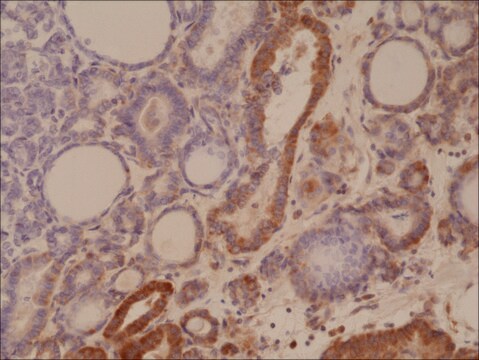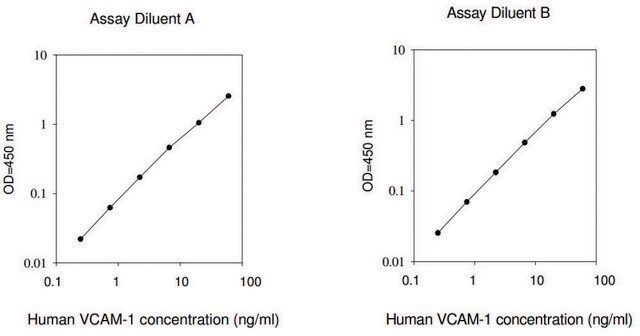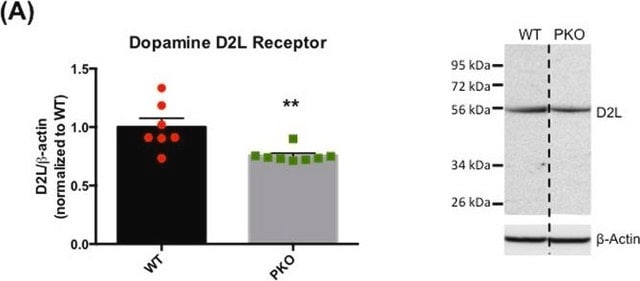V9134
Monoclonal Anti-Vascular Endothelial Growth Factor Receptor-2 antibody produced in mouse
clone KDR-1, ascites fluid
Sinónimos:
Anti-KDR, Anti-VEGF R-2
About This Item
Productos recomendados
biological source
mouse
Quality Level
conjugate
unconjugated
antibody form
ascites fluid
antibody product type
primary antibodies
clone
KDR-1, monoclonal
contains
15 mM sodium azide
species reactivity
human
technique(s)
immunohistochemistry (frozen sections): 1:800 using human placenta
indirect ELISA: suitable
isotype
IgG1
UniProt accession no.
shipped in
dry ice
storage temp.
−20°C
target post-translational modification
unmodified
Gene Information
human ... KDR(3791)
General description
Immunogen
Application
- immunohistochemistry
- histology
- immunostaining
- enzyme linked immunosorbent assay (ELISA)
Biochem/physiol Actions
Disclaimer
¿No encuentra el producto adecuado?
Pruebe nuestro Herramienta de selección de productos.
Storage Class
10 - Combustible liquids
wgk_germany
WGK 1
flash_point_f
Not applicable
flash_point_c
Not applicable
Certificados de análisis (COA)
Busque Certificados de análisis (COA) introduciendo el número de lote del producto. Los números de lote se encuentran en la etiqueta del producto después de las palabras «Lot» o «Batch»
¿Ya tiene este producto?
Encuentre la documentación para los productos que ha comprado recientemente en la Biblioteca de documentos.
Nuestro equipo de científicos tiene experiencia en todas las áreas de investigación: Ciencias de la vida, Ciencia de los materiales, Síntesis química, Cromatografía, Analítica y muchas otras.
Póngase en contacto con el Servicio técnico








